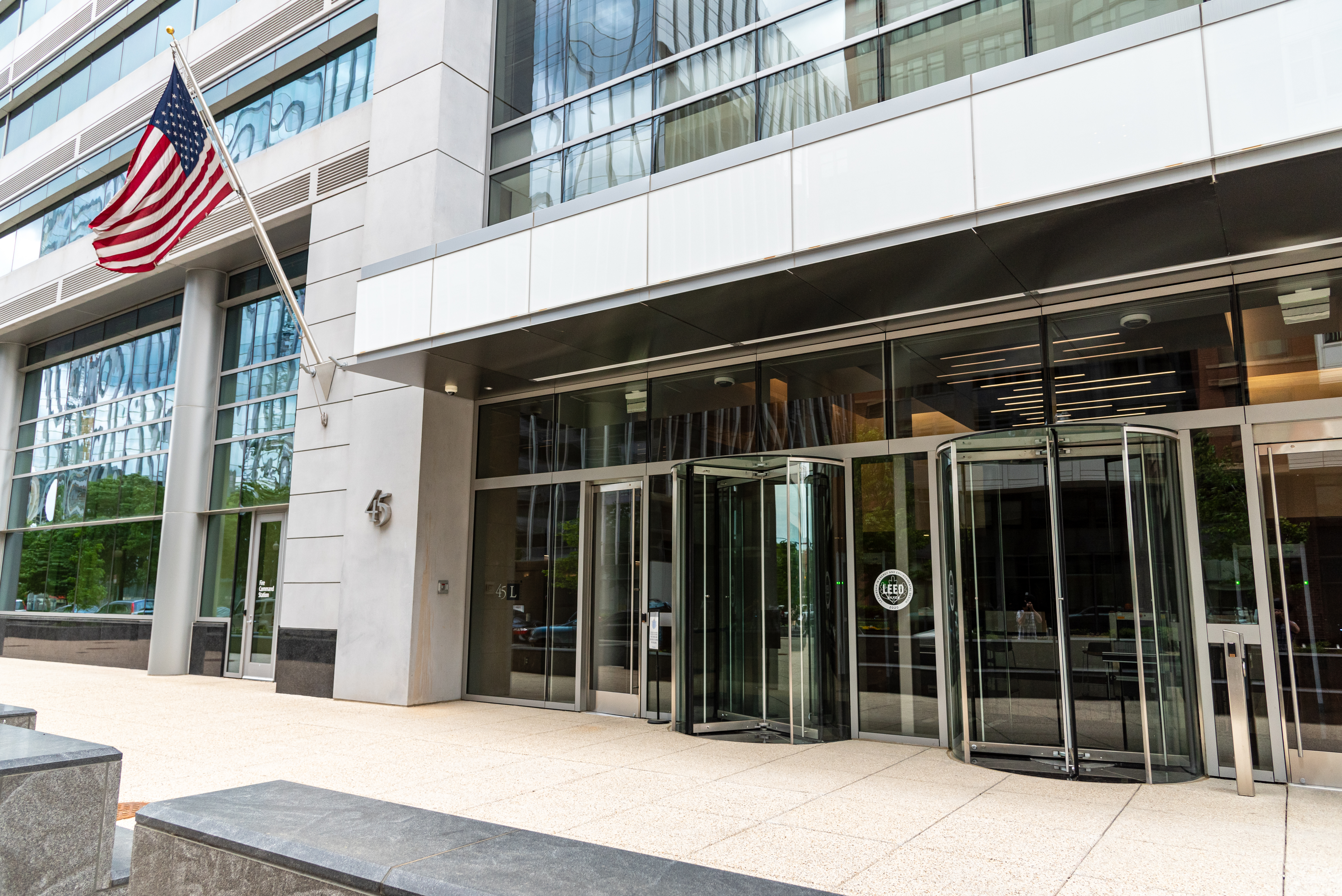CTA, NCTA, LPTVBA Meet With FCC to Oppose NAB’s ATSC 3.0 Petition
Six groups said they had different perspectives but ‘one goal’ in urging the regulator to ‘deny NAB’s requests’

The professional video industry's #1 source for news, trends and product and tech information. Sign up below.
You are now subscribed
Your newsletter sign-up was successful
WASHINGTON—Representatives from six trade groups representing tech, pay TV, broadband, LPTV and other sectors recently met with Federal Communications Commission staff to detail their opposition to the "Petition for Rulemaking and Future of Television Initiative Report" filed by National Association of Broadcasters (NAB) regarding the transition to NextGen TV/ATSC 3.0.
“This diverse group of stakeholders represents different aspects of the television marketplace, and each is on record individually opposing NAB’s Petition,” the groups said in a letter to the FCC summarizing the meeting. “Each participating organization has a different perspective, but we all have a common goal. We respectfully urge the Commission to deny NAB’s requests.”
In a February filing, the NAB proposed the FCC mandate a two-phase transition deadline. In the first phase of the NAB proposal, full-power stations in the top 55 markets (reaching about 70% of viewers) would be required to transition fully to ATSC 3.0 (i.e., end ATSC 1.0 simulcasting) in February 2028, with limited waivers for smaller and noncommercial stations if necessary. In the second phase of the NAB proposal, stations in the remaining markets would be required to transition fully to ATSC 3.0 in February 2030. The NAB is also asking that ATSC 3.0 tuners be mandated in all new TV sets.
The full NAB filing can be found here.
In April the FCC's Media Bureau issued a request for public comment on the transition and the NAB’s proposal.
In a July 1 letter to the FCC, representatives of the Consumer Technology Association, Public Knowledge, NCTA—The Internet & Television Association, ACA Connects, the American Television Alliance (ATVA), and the LPTV Broadcasters Association said that they met on June 27 with the offices of Chair Brendan Carr, Commissioner Anna Gomez and the Media Bureau.
During the meeting, the CTA reiterated its longstanding position that the transition to ATSC 3.0 should remain voluntary and that "a mandatory transition to ATSC 3.0 would harm consumers by imposing costs for consumers, stifle innovation, and levy unneeded regulations.
The professional video industry's #1 source for news, trends and product and tech information. Sign up below.
"If broadcasters are concerned about market demand for ATSC 3.0 tuners, they need to do their part in consumer education and promotion rather than seeking a technology mandate,” the CTA said in opposition to the NAB’s proposal that ATSC 3.0 tuners be required in new U.S. TV sets. “Given the data from multiple sources that shows a small percentage of households solely rely on OTA broadcast for their video content, it would be harmful to consumers to mandate that all televisions include an ATSC 3.0 tuner because of the increased manufacturing cost to implement for all a feature that only some want.”
During the meeting, the NCTA underscored that the FCC “should maintain a market-based approach to ATSC 3.0, particularly given that NAB’s proposal would impose new regulations and substantial and unjustifiable costs on MVPDs in the absence of any clear consumer demand for ATSC 3.0 signals,” the letter to the FCC noted. “None of NCTA’s cable operator members are able to carry ATSC 3.0 signals without first making costly changes to their networks—one NCTA member estimates that purchasing and installing new ATSC 3.0 transceivers alone will likely cost tens of millions of dollars and take a substantial amount of time. The inevitable result would be to drive up the cost of cable service at a time when cable operators are already losing customers.”
During the meeting, the LPTV Broadcasters Association expressed support for authorization to transmit using all current broadcast standards, including ATSC 1.0, ATSC 3.0, and 5G Broadcast.
“LPTVBA strongly opposes a mandatory transition for LPTV and Class A facilities to adopt ATSC 3.0, a standard that is not delivering as promised after 15 years of development,” the letter said. “LPTVBA strongly supports LPTV and Class A stations having the option to broadcast in any approved standard or new standard that is the highest and best use in the public interest in a broadcaster’s community. If a transition to ATSC 3.0 is mandated, then the Federal Government or Full Power Broadcasters must absorb the cost of the transition for LPTV and Class A stations as the cost is beyond the realities of most stations which are small businesses. LPTVBA strongly supports a required broadcast stream and use of the spectrum for new and innovative First Responder solutions and emergency alerts for LPTV and Class A stations.”
The full text of the letter, with the groups’ arguments against the NAB petition, is available here.
George Winslow is the senior content producer for TV Tech. He has written about the television, media and technology industries for nearly 30 years for such publications as Broadcasting & Cable, Multichannel News and TV Tech. Over the years, he has edited a number of magazines, including Multichannel News International and World Screen, and moderated panels at such major industry events as NAB and MIP TV. He has published two books and dozens of encyclopedia articles on such subjects as the media, New York City history and economics.

